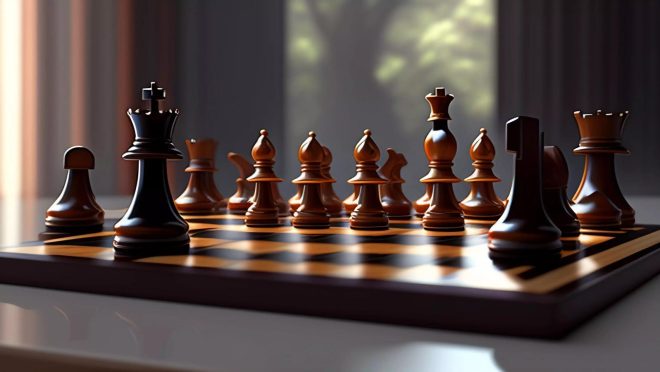Is chess enjoying a renaissance?
Is chess enjoying a renaissance?

Like with most of the large societal and cultural shifts humanity has endured in the past four years, the rise of chess into the global zeitgeist has its beginnings in the Covid-19 pandemic.
The glut of free time many people experienced during the lockdowns as jobs were either lost or shifted to work from home positions — as well as cultural events such as the release of Netflix’s surprisingly popular “The Queen’s Gambit” and the rise of chess streaming on services like Twitch and YouTube — has resulted in an explosion of popularity across all age groups.
As a convergence of unrelated factors it is easy to assume that the resulting hype was all flash and no substance, yet even after the pandemic ended and the world began to return to normal, the new enthusiasm for chess remained.
In 2022, one of the most liked photos on social media of the year was that of footballing legends Lionel Messi and Cristiano Ronaldo playing chess together.
Part of this rising enthusiasm is in part due to the game’s history, and also because it is supremely easy to get started in. The saying “easy to learn, hard to master” could not describe chess more.
The eponymous chess.com website is perhaps the easiest and fastest way to play a game of chess, either against another person or a computer with a range of levels from below beginners to grandmaster and above.
It is almost painfully simple, with just two clicks from the front page and you’re already in a match. The website also includes chess news, guides, and videos from known masters of the game, providing an ideal learning situation for those just beginning.
Since January 2020 chess.com experienced a flood of new players with a 238% increase in players, which peaked at 102 million players.
This stressed the site to the point where they had to issue a happy apology to their players while upgrading their servers to accommodate all the new fans.
Unlike most modern games, chess is not a game that requires fast reactions. Instead it rewards those who can plan ahead and will calmly think through actions under pressure.
It has also been shown to improve memory and some have claimed it can help war dementia by keeping the brain active.
Chess can trace back its history over 1,500 years to its ancestor in India, called “chaturanga.” It would spread to Ancient Persia and then the Muslim world after it was conquered by the Arabs. Islam would bring it further east into Spain and Italy where it spread further across the world until it eventually appeared in the form it is known for today.


